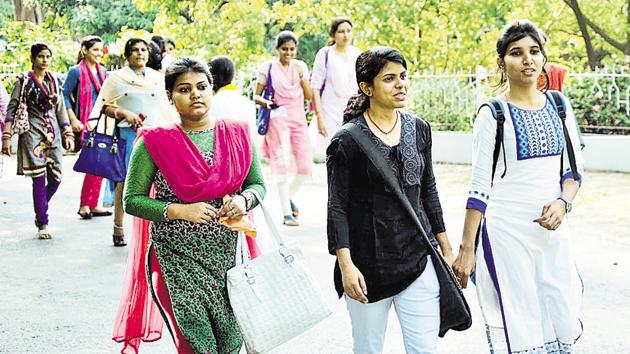Career Counselling: How can I make a career in food technology?
Food technologists work in the food processing industry which is among the fastest growing sectors in the country today with the growing demand for packaged and fast foods.
I have done BTech in Biotecnology and MTech in Food technology. I would like to work in either a government sector or corporate sector. so what are the various opportunities in this field? - Rupanjali Pathak

Food technologists work in the food processing industry which is among the fastest growing sectors in the country today with the growing demand for packaged and fast foods.
Food technologists develop new and improve existing food products and set standards for producing, packing and marketing food. They usually specialise in fields such as fruit products, wheat based products, meat and dairy products or seafood and may work in a particular area such as supervising production, quality control, or conducting research and development work to improve current products and create new ones.
They may also be called on to perform administrative, marketing and management duties or concentrate on controlling food quality. Companies like Hindustan Lever, Heinz, Kellogs, Nestle and many others recruit food science graduates for these jobs.
A post - graduate candidate in food technology can also work as a lecturer or an advisor in Government Colleges, Inspection Boards or Quality Control Cells of government food departments.
So if you have a scientific bent of mind with a practical approach to jobs, and have an interest in the food services field then food technology could be a good option.
I am a full-time banker and will be completing around 20 years in the field shortly. I want to retire from a regular job and try a career in voice-overs. Please suggest the institutes that provide such training and the scope of choosing this as a profession. - Rajni Badwal
There is no formal career in providing voice overs for TV and film programmes.
Such assignments are normally handled by those with some prior experience as a DJ, or RJ or have worked in the TV and film field. There are no formal courses in voice training, except for some short 3-6 months courses in news-reading and presentation offered by well known DJs or RJs and some TV and film training institutes.
If you think you have a good voice and the confidence to handle voice recordings, I would suggest that you record your voice with a variety of voice modulations doing different kinds of recordings - documentaries, voice overs, ad jingles and RJing - on any recording device, and take it across to recording studios.
Most studios will either call you for an audition, or keep the voice categorised for use as demo, for the requirements of filmmakers, production companies or Television and radio channels. You can also directly approach Television production houses, and radio channels and leave a copy of your show reel with them. However keep in mind that most jobs in voice-overs are mostly part-time or freelance jobs and it is difficult to maintain a full-time professional career in this field. So choose wisely.
I am a graduate and currently working in a large accounting firms. I am confused between Membership in the association of Chartered Certified Accountants, of UK (aCCa) or MBA. I think my interests lie in both the fields. Please assist me making this decision. - Twinkle Dawar
You need to think about what you are good at and the kind of job, and work you like to do. If you are good at your current job and wish to do similar kind of work at a more advanced level, then the ACCA (Membership in the Association of Chartered Certified Accountants, of UK) which is a professional qualification in the field of Accountancy, Auditing and Taxation will enable you to pursue a rewarding career in accountancy, audit, finance, and taxation in India and abroad.
An MBA in finance is a good field for those with strong analytical and reasoning abilities and for those who can handle not just the conventional auditing and accounting but do more on job.
It is also about a vast range of activities like fund raising, foreign exchange, treasury management, investment banking, money market operations, securities management and financial and strategy consulting.
You also need to be prepared to work towards getting into a top-level MBA institute which given today’s competition is a difficult goal to achieve.
So dependent on the kind of skills you have and the work you can visualise yourself doing, you can make your choice of an MBA institute and the stream you want to pursue.
(The columnist is director of Career Smarts and the author of The Penguin India Book of Careers Vol 1 and 2. Views expressed here are personal)












